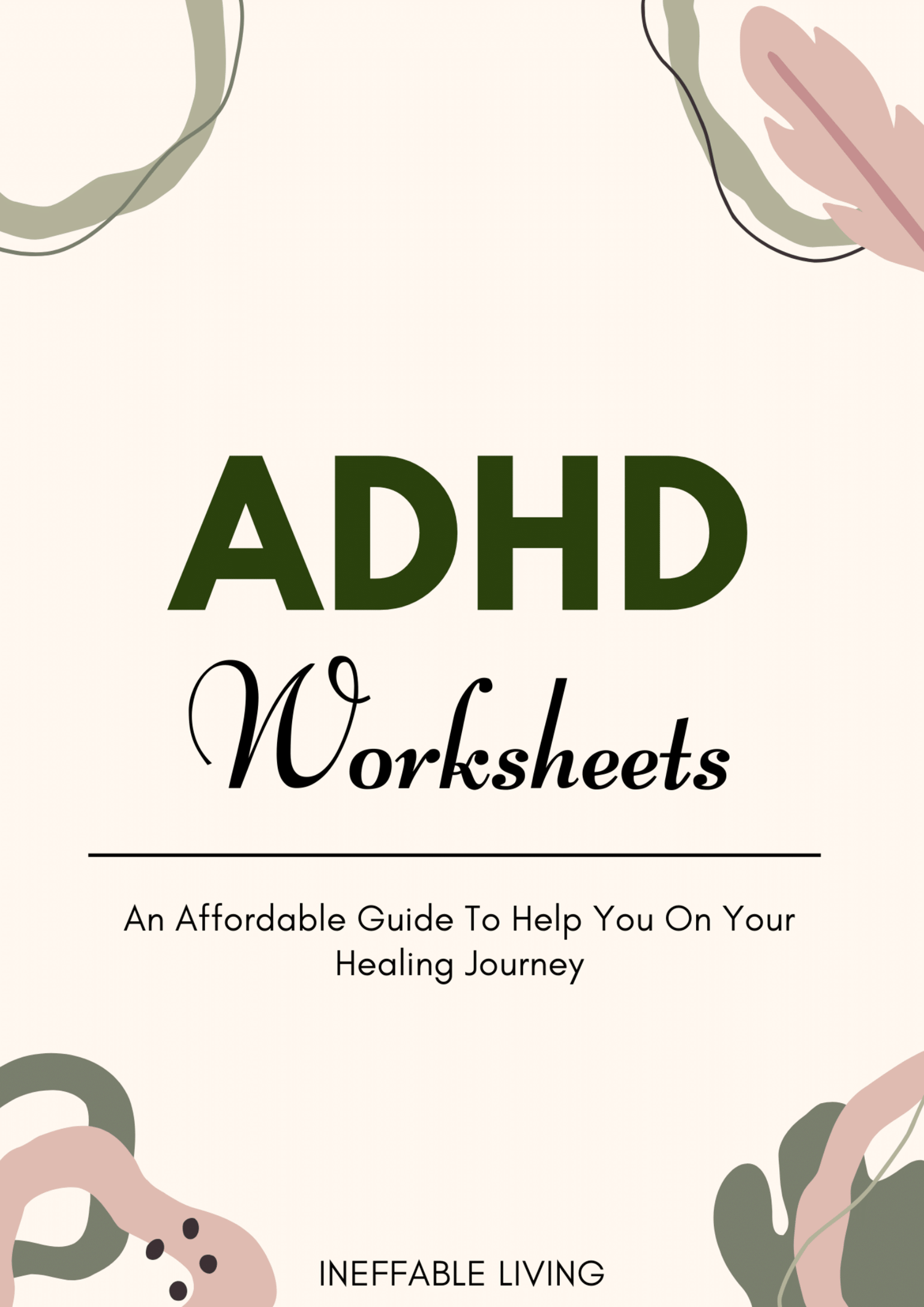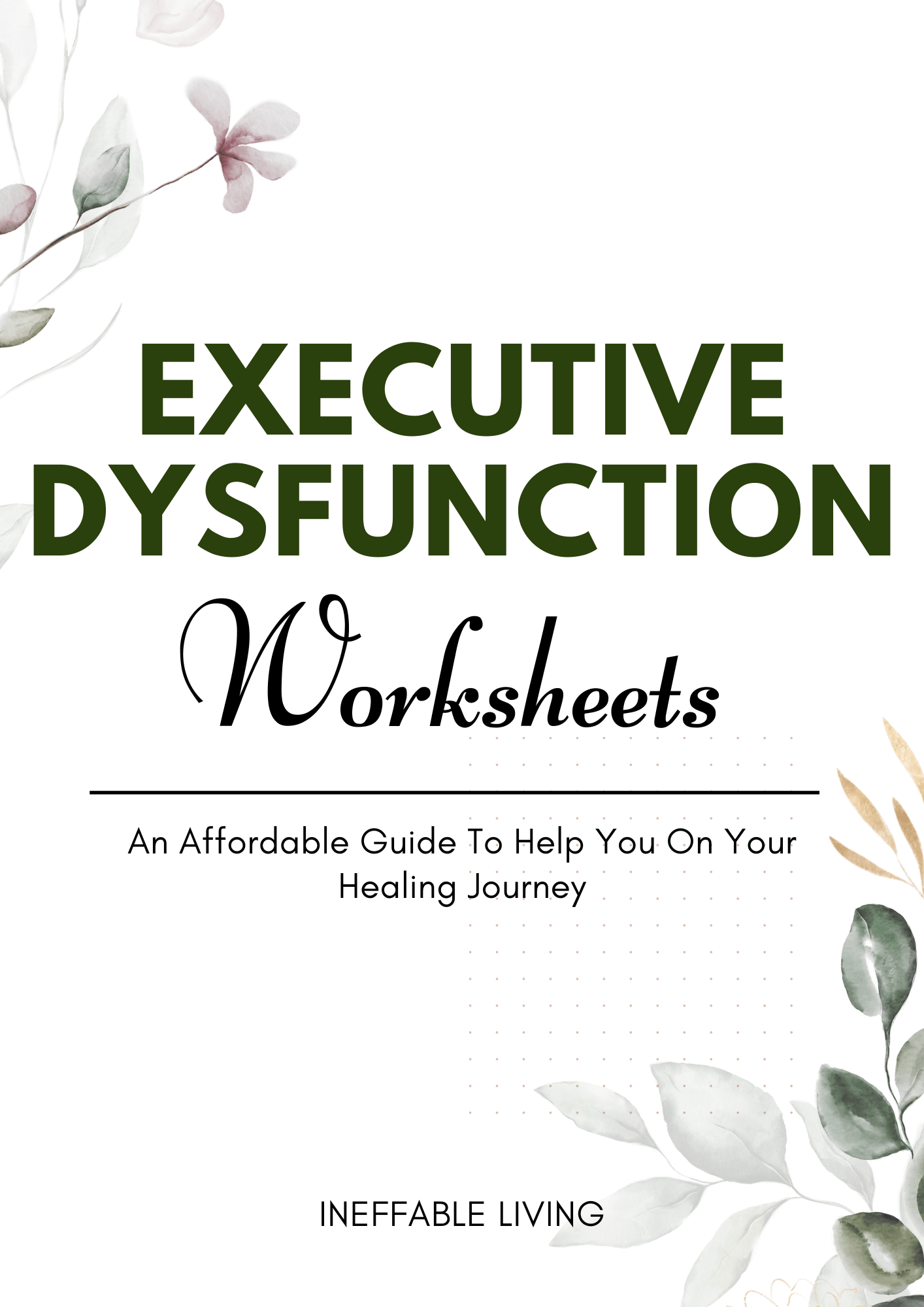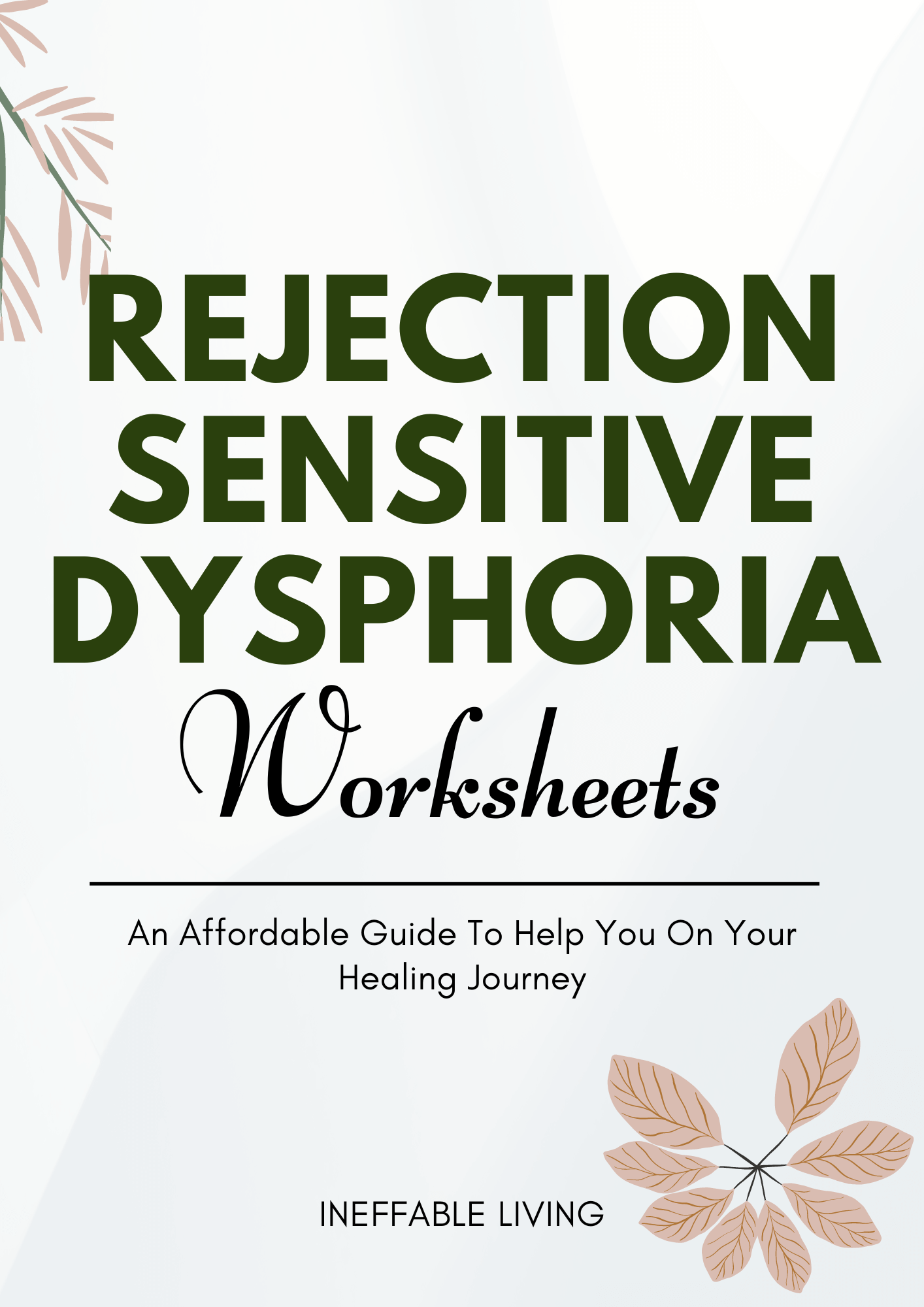Living with ADHD can feel like having 100 browser tabs open — all at once. Thoughts race, focus slips, to-do lists grow faster than you can finish them, and overwhelm sets in before the day even starts. If this sounds familiar, you’re not alone — and there is support that works with your brain, not against it.
Mental health worksheets designed for ADHD aren’t about forcing productivity. They’re about creating structure, clarity, and calm — so your brain can breathe again.
What ADHD Brain Overload Looks Like
Whether you’re officially diagnosed or simply relate to ADHD symptoms, the signs of overload are hard to miss:
- You jump between tasks and finish none of them
- You feel mentally exhausted but can’t slow down
- You start things with energy but burn out quickly
- You forget important things, even when you care deeply
- You feel guilty for not being “productive enough”
These cycles are frustrating and draining — but you’re not broken. You just need tools that work with your unique processing style.
ADHD, or Attention Deficit Hyperactivity Disorder, encompasses a range of symptoms and challenges that can affect various aspects of daily life.
Among the primary issues associated with ADHD are executive dysfunction and Rejection Sensitive Dysphoria (RSD).
Executive Dysfunction and ADHD
Executive dysfunction refers to difficulties in cognitive processes that enable an individual to plan, focus attention, remember instructions, and juggle multiple tasks successfully.
Individuals with ADHD might struggle with:
- Organization: Keeping track of tasks, managing time, and maintaining an orderly environment can be challenging.
- Planning and Prioritization: Developing steps to achieve goals and deciding on the order of tasks can be difficult.
- Working Memory: Holding and manipulating information for short periods is often impaired.
- Impulse Control: Regulating immediate reactions and considering long-term consequences can be problematic.
- Flexibility: Adapting to new situations or shifting strategies can be tough.
Rejection Sensitive Dysphoria (RSD) and ADHD
Rejection Sensitive Dysphoria (RSD) is a condition where individuals experience extreme emotional sensitivity and pain due to perceived or actual rejection, criticism, or failure.
For people with ADHD, RSD can manifest as:
- Intense emotional reactions to criticism or rejection, often disproportionate to the situation.
- Avoidance of situations where they might fail or be criticized.
- Persistent fear of rejection, leading to social withdrawal or overachievement to gain approval.
- Quick mood swings triggered by perceived disapproval or negative feedback.
1. ADHD Worksheets
Simplify the chaos with practical tools to manage overwhelm, boost focus, and create structure that works with your brain — not against it.
2. Executive Dysfunction Worksheets
Break through mental paralysis and procrastination with step-by-step prompts that help you start, follow through, and finish tasks more easily.
3. Rejection Sensitive Dysphoria Worksheets
Ease the emotional intensity of perceived rejection with reflection exercises that build resilience, regulate emotions, and reduce self-blame.
How ADHD Worksheets Can Help
ADHD worksheets aren’t just about organizing your time — they help regulate your mind. They offer short, simple, and structured ways to:
- Break big tasks into manageable steps
- Turn chaos into clarity with visual tools and prompts
- Track emotions and patterns that affect your focus
- Develop coping strategies for distraction and overwhelm
- Practice self-compassion instead of shame
They’re not boring or clinical — they’re practical, flexible, and tailored for brains that need a little more direction and a lot more kindness.
Designed for How You Actually Function
Unlike generic planners or rigid systems that expect you to “just focus,” ADHD worksheets understand:
- You need flexibility, not pressure
- You crave visual structure
- You benefit from built-in pauses and rewards
- You do best with short, focused bursts — not hours of pushing through
Whether you use these worksheets daily or only during high-stress weeks, they meet you where you are — no shame, no judgment.
Your Brain Isn’t Broken — It Just Needs a Better System
You’re not lazy. You’re not flaky. You’re not failing. Your brain is simply wired for creativity, spontaneity, and complexity — and that comes with challenges, too.
These ADHD-friendly worksheets offer more than organization — they offer relief.

Read Testimonials –> HERE
FAQs
Can I use the worksheets with my therapy clients?
Absolutely! The worksheets are meant for both, personal and professional use.
The worksheets are copyrighted so you can’t resell them or upload them publicly online. But you can share them with your clients.
Can I make changes to the files before handing them down to my clients?
Absolutely! You can convert your PDF files to word documents and make changes using free tools like pdf2doc.com.
How do I know if these worksheets are right for me?
These worksheets are perfect for anyone who needs an affordable, yet effective strategies to help them increase their self-awareness and work on their own issues – alone or with their therapist.
These worksheets are not a one-size-fits-all approach and are in no way meant to imply that change is as one-dimensional as a worksheet.
So choose the techniques and suggestions that apply to you and tailor the exercises in ways that will be helpful to you.
Can I use these worksheets on my own or should I seek professional guidance?
These worksheets are designed to be helpful on their own. However, seeking professional guidance from a mental health professional can increase their effectiveness.
How do I use mental health worksheets effectively?
1. Set aside dedicated time: Find a quiet and comfortable space where you can focus on yourself without distractions. Treat this as valuable self-care time, just like you would for any other important appointment.
2. Choose the right worksheet: There are numerous worksheets available, each offering unique exercises and prompts. Consider your specific needs and goals. Are you looking to enhance self-awareness, manage stress, or improve your relationships? Select a worksheet that aligns with your current focus.
3. Read instructions carefully: Take a moment to fully understand the purpose and instructions of the worksheet. Clarify any questions you may have before proceeding.
4. Engage in self-reflection: Set pen to paper and let your thoughts flow. Don’t worry about perfection or judgment – this is your private space to express yourself authentically. Be honest with yourself and explore your emotions, thoughts, and experiences without restraint.
5. Reflect on your insights: After completing the worksheet, take some time to reflect on what you have learned about yourself. Consider any patterns or triggers that impact your mental well-being. Identify areas where you can implement positive changes or coping strategies.
6. Incorporate your insights into daily life: The true value of mental health worksheets lies in applying your newfound awareness and insights to your everyday life. Consider how you can integrate these insights into your relationships, self-care routines, and overall well-being.
When should I see a therapist?
These worksheets are designed to help you better understand yourself, your distress, and your difficulties.
You can use it in conjunction with therapy or as a stand-alone guide to manage your distress.
These worksheets can be considered a low-intensity intervention. They’re perfect for those who are struggling with mild to moderate issues.
In mental health, mild to moderate symptoms are those that are severe enough to be distressing to you, but moderate enough that you can still manage most of your daily activities.
If you feel very overwhelmed by any of the exercises in these worksheets, this might be a sign that your symptoms are too severe for you to do the work by yourself.
A therapist will help you at your own pace and provide support and encouragement throughout the process.
Do you have more questions? Check this page –> FAQs


